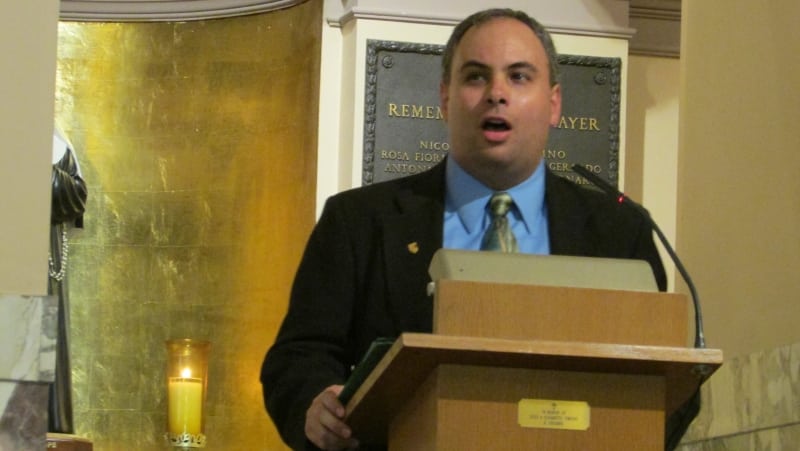Saturday of the 16th Week in Ordinary Time – Year 2 | July 23, 2022
If you know any gardeners in your life – or you are one – you know that weeds are the bane of any gardener’s existence! They always end up in the seemingly worst places and you’d like nothing more than to get rid of them once and for all, and be done with them. But they keep coming back!
Usually, someone who is long skilled at gardening can identify the weeds right away, even when a person who isn’t a gardener can’t tell the difference between a real plant they want to keep, and a weed they want to uproot.
The Gospel reading from Matthew today and the parable of the weeds and the wheat present a particularly difficult gardening problem – though in this case the garden is in the spiritual life.
A sower plants good wheat seed and then someone else comes and sows weeds next to the good seed. Unlike with plants we might work with, in this case, the wheat and the weeds, when they sprout, look almost completely identical. You wouldn’t be able to tell which one is which until it flowers fully. Hence the problem, which the sower mentions to the household servant – if you take up the weeds you might pull the wheat along with it, because they look almost the same! So the sower needs to let them grow together until harvest.
I can imagine that for some of those who were listening to Jesus’ parable, this might not have been a satisfying solution, especially since the parable was supposed to have a deeper spiritual meaning as Jesus’ stories always did!
“Why wait so long to separate them?” They might ask. Does Jesus not care that those who do evil deeds – the weeds – might harm those who are trying to do good – the wheat? It might seem Jesus isn’t concerned about these things at first, but remember, he says to judge their appearance when their blossoms appear at harvest time.
See what comes out of them. See what fruit they bear. See how they conduct themselves. Then you will see clearly how you can be spiritually enriched by those who do good and how to avoid falling under the influence of those who do evil. And, since each of us is a sinner, it is a reminder that sometimes we can be both wheat and a weed – and we sometimes have to garden on our own hearts so that our spiritual life doesn’t get full of weeds!
Jesus says: Be patient. Be observant. Carefully watch, and then you will be ready to act when the time comes.
There is great wisdom here. Jesus knew that sometimes the way people act in public doesn’t match up with the way they actually believe or the actions they take when they think no one is watching. That’s what Christians call the sin of hypocrisy, and Jesus knew how to spot it because he observed the way people acted – and if their deeds matched their words.
Like the prophet Jeremiah in the first reading, Jesus isn’t swayed by people’s words, but by their actions. Similarly, Jeremiah castigated those in his time who thought the city of Jerusalem is protected by God’s care and said nothing can happen here because it is the temple of the Lord! The temple of the Lord! The temple of the Lord! Instead, God, speaking through the prophet, said you have a lot of work to do:
- Stop oppressing
- Defend the vulnerable
- Do not condemn the innocent to death
- Don’t trust in false gods or in money or power
God said that if you don’t stop these sins, the words “the temple of the Lord” won’t save you, because you will have made the temple a den of thieves – words which Jesus himself repeated hundreds of years later when he saw the way in which those in charge of the Temple in Jerusalem in his time had again forgotten the important work of justice and care for those most in need.
These are important words for us to hear in our own time too. When we gather for the celebration of the Eucharist, and literally participate in communion with the body and blood of Christ by eating the bread and drinking the cup, we are also making a commitment to live our lives according to the teachings of Christ, and to root out of our own lives any hypocrisy and spiritual weeds that have grown up in there.
When we participate in the Eucharist we are invited to see with the eyes of Christ, so that we can be ready to distinguish the wheat and the weeds in our own spiritual lives and to be discerning of the fruit we find in the lives of others, so that, when the last harvest comes, we will find ourselves gathered into God’s barn.
God give you peace!


 Request Dr. DelMonico's professional services for a liturgical, ministerial or leadership consultation, or for an academic or public presentation.
Request Dr. DelMonico's professional services for a liturgical, ministerial or leadership consultation, or for an academic or public presentation.